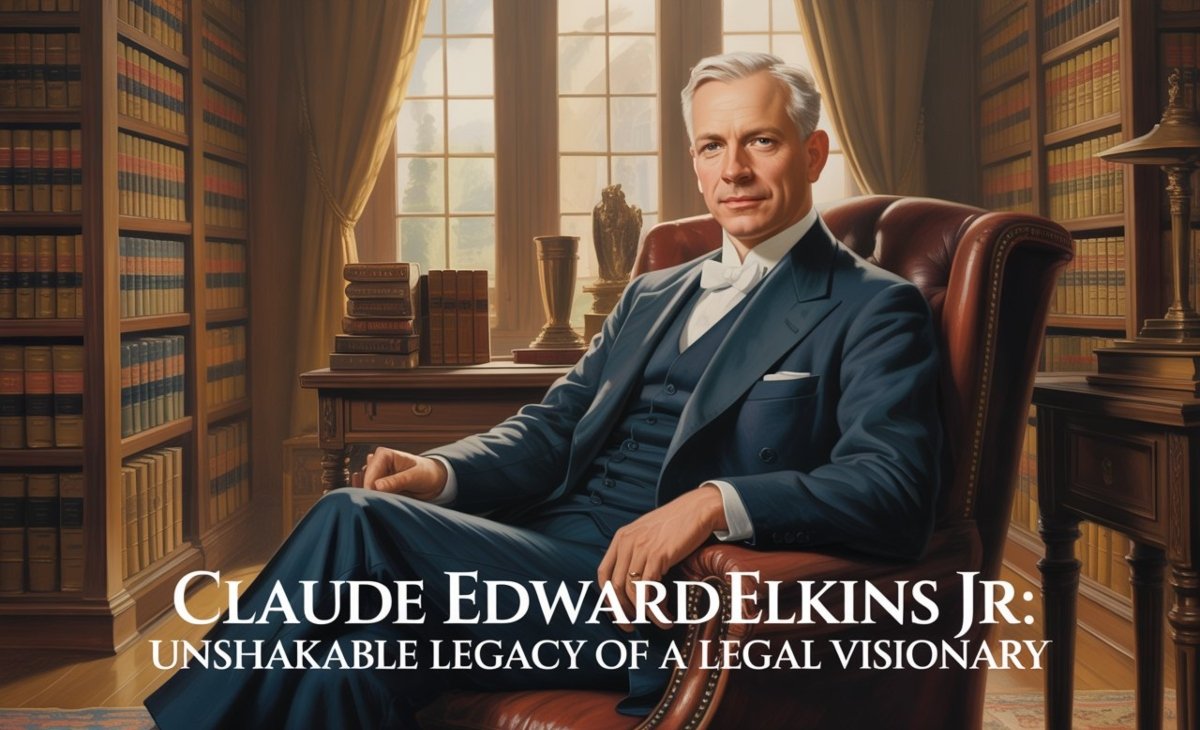Every so often, a life emerges that reshapes the way we think about service, justice, and leadership. Claude Edward Elkins Jr lived such a life. His name resonates not only within the world of law and politics but also in the hearts of the communities he served tirelessly. More than a lawyer, more than a public servant, he was a man of principle, whose actions reflected a deep belief in fairness, opportunity, and compassion. His journey shows us what it means to leave behind not just a career, but a true legacy.
Early Life and Education
Born into modest surroundings, Claude Edward Elkins Jr grew up in a community that valued resilience, honesty, and service to others. These values became the backbone of his life. Even as a young boy, he displayed a natural curiosity and a strong sense of justice. Teachers described him as someone who didn’t just memorize facts but questioned systems, eager to understand why things worked as they did.
Education became both his passion and his pathway. He pursued his studies with relentless determination, excelling in academics while demonstrating leadership qualities that stood out among his peers. His years in higher education only deepened his interest in the law. At university, he encountered professors and mentors who challenged his thinking, encouraging him to see law not merely as a profession but as a tool for social change. Those experiences sharpened his intellect and fortified his commitment to justice.
Building a Career in Law and Politics
Claude Edward Elkins Jr did not step quietly into his professional life. From his earliest days as an attorney, he was known for taking on difficult cases and standing with individuals and communities who often felt voiceless. He saw the law not as an exclusive privilege, but as a powerful equalizer.
His reputation grew as someone who combined legal brilliance with an unwavering sense of integrity. He served in advisory roles where his insights shaped pivotal legislation, and his legal advocacy reached far beyond the courtroom. In politics, he sought to bridge divides rather than exploit them. Dialogue, he often said, was stronger than division. That philosophy allowed him to foster collaborations across party lines, creating real solutions where others saw only gridlock.
What set him apart was not only his skill but his purpose. He did not chase recognition; instead, he focused on the people who would benefit from the policies he helped craft and the cases he chose to fight.
Mentorship and Leadership
For Claude Edward Elkins Jr, success meant nothing if it wasn’t shared. He devoted significant energy to mentoring aspiring lawyers, young politicians, and students who sought guidance. His mentorship was practical, personal, and always rooted in integrity.
Many of those he guided went on to become leaders themselves, carrying forward the same values he instilled: dedication to fairness, respect for others, and the courage to challenge systems when they fell short. Through seminars, lectures, and one-on-one mentorship, Elkins created a ripple effect—his influence extending far beyond what one man could accomplish alone.
Commitment to Philanthropy and Community Service
Though widely respected in the professional arena, his influence was equally strong in his personal commitments. Claude Edward Elkins Jr believed in giving back. His philanthropic efforts spanned education reform, social justice programs, and support for underprivileged families.
He worked with community organizations to provide resources to those in need, whether through scholarships for students or shelters for vulnerable populations. His vision of service was hands-on—he didn’t just donate; he showed up. Those who volunteered alongside him often spoke of his humility. Despite his accomplishments, he worked shoulder-to-shoulder with community members, embodying the idea that leadership begins with service.
Shaping Society and Inspiring the Future
The true measure of Claude Edward Elkins Jr’s life lies in the impact he left behind. His influence touched individuals, institutions, and entire communities. He understood that laws shape societies, and he used his expertise to ensure those laws moved toward fairness and inclusivity.
Future generations continue to look to him as a role model. For young lawyers, he remains a symbol of what it means to practice law ethically. For politicians, he stands as proof that bipartisanship and collaboration can achieve meaningful change. And for communities, his story reminds us that leadership and compassion are inseparable.
Even today, policies shaped by his work continue to benefit marginalized groups, while his example inspires new leaders to approach their work with humility and integrity.
The Enduring Legacy of Claude Edward Elkins Jr
Claude Edward Elkins Jr’s life was more than a series of achievements—it was a narrative of purpose. He showed that true leadership requires courage, patience, and an unwavering dedication to justice. And his values continue to guide the generations that follow.
To remember him is to honor the ideals he championed: integrity in action, compassion in leadership, and justice for all. His story is not just history—it’s a reminder that each of us has the power to leave behind a legacy built on service and truth.
FAQs About Claude Edward Elkins Jr
Who was Claude Edward Elkins Jr?
Claude Edward Elkins Jr was a respected lawyer, political leader, and philanthropist known for his commitment to justice, mentorship, and community service.
What were his main contributions to law and politics?
He advised on pivotal legislation, advocated for equality, and promoted bipartisanship in political spaces, shaping policies that continue to influence society today.
How did he impact his community?
Through philanthropy, education advocacy, and social programs, he uplifted underserved communities and inspired civic engagement.
Why is Claude Edward Elkins Jr’s legacy important today?
His values of fairness, service, and integrity remain guiding principles for lawyers, politicians, and activists who strive for justice and inclusivity.
Did he mentor others?
Yes, he mentored young lawyers and politicians, instilling high ethical standards and fostering the next generation of leaders.





